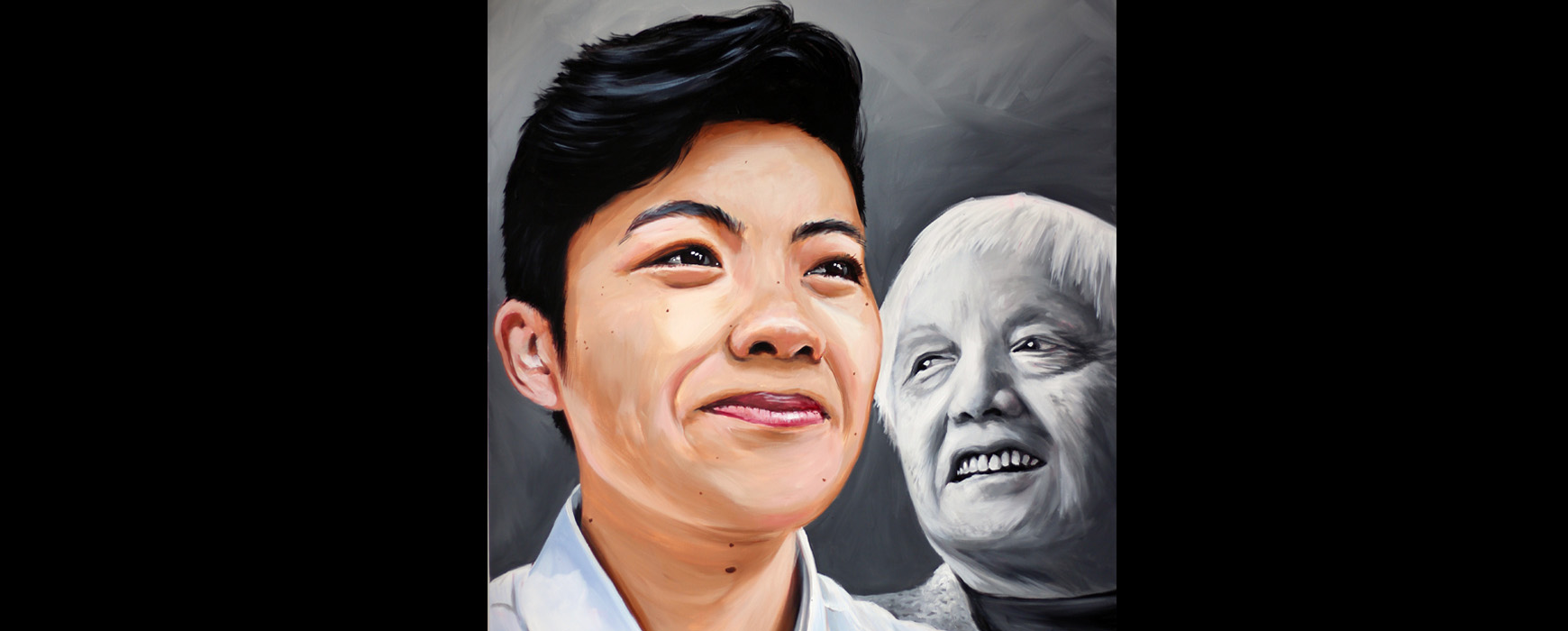
Melanie Pang
Melanie Pang
Name, age, occupation:
Melanie Pang, 33, LMSW; Clinical Assistant Professor, Graduate College of Social Work
Social Media:
Facebook: @melanietpang Twitter: @MelPang_Hou
Why did you select Grace Lee Boggs as your social justice icon?
Grace Lee Boggs advocated for not only the transformation of our society, but for the transformation within each one of us. In her words, “To make a revolution, people must not only struggle against existing institutions. They must make a philosophical/ spiritual leap and become more ‘human’ human beings. In order to change/ transform the world, they must change/ transform themselves.”
Her work as an Asian American activist for tenants’ rights, marginalized groups, and specifically the Black Power and civil rights movement struck me as so forward-thinking and brave, especially in the 1960s, considering it is not uncommon to hear anti-black sentiments in Asian communities even now in 2019. I chose Boggs because I think that there are still so many bridges to build across communities, so many roads to build within ourselves, and I think anti-racism work will have to be a part of our consciousness for centuries to come. Author Adrienne Maree Brown captures much of Boggs’ work in her book Emergent Strategy, and I think it’s true that social change achieved at a micro level will be evident at a macro level.
Do you have a favorite quote from your social justice icon?
"You cannot change any society unless you take responsibility for it, unless you see yourself as belonging to it and responsible for changing it."
Are there any books, documentaries, films, articles, etc that you would recommend for others to learn more about the work of your social justice icon?
Book: The Next American Revolution: Sustainable Activism for the Twenty-First Century
What social, racial, economic, or political justice issue does your work address?
Food intersects with all of these areas because it is a basic need; food insecurity is a social, racial, economic, and political issue because it is a symptom of poverty. For 30 years, we’ve believed that we can end hunger by feeding people, and we were wrong. Now that hunger has increased while food banks distribute more food than ever, we must face the reality that we cannot end hunger until we end poverty. Ending poverty will take shifting our beliefs toward a consensus that race is woven into the structures of our economy and politics, and we must develop solutions together that can motivate us to change them as a country. My work is about facilitating that dialog, providing the necessary education, and advocating for policy change so that our community can not only imagine but also believe in a world that doesn’t need food banks.
If you could have everyone in the world do one tangible thing to help advance the cause of the issue you work on, what would it be?
Shift our thinking about compassion to include not only acts of kindness but also civic responsibility, self-awareness, and vulnerability.
Who or what else inspires your work?
Love; the resilience of people. There is so much suffering in the world, and yet, there is still such an abundance of love.
FUN FACTS
What are some of your hobbies? What do you do for fun?
Spend time with my wife and my rescue dogs! Lately, I’ve been learning a lot of life lessons through training in Muay Thai, like how to think strategically in moments of chaos. And how to get take a kick to the stomach. But mostly the former.
What are some of your favorites social justice related things?
Podcast: H-Town Progressive for its deep dives into current issues with local flavor; The Moth, because I believe storytelling is advocacy; it helps us to know how others live.
What would people be surprised to know about you?
I believe I am more introverted than extroverted. I still enjoy events where there are lots of people-- just know that I’ll need a big nap afterward!